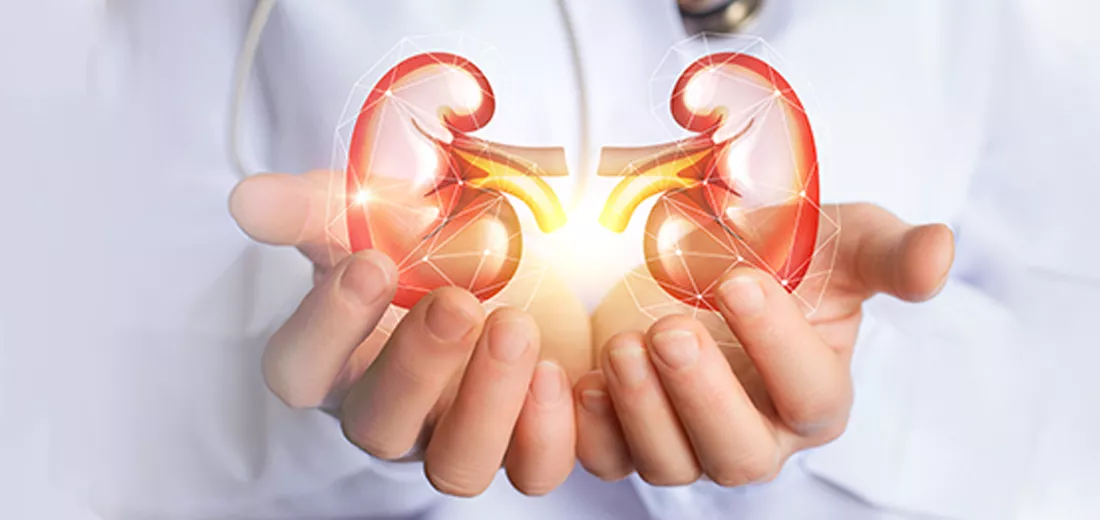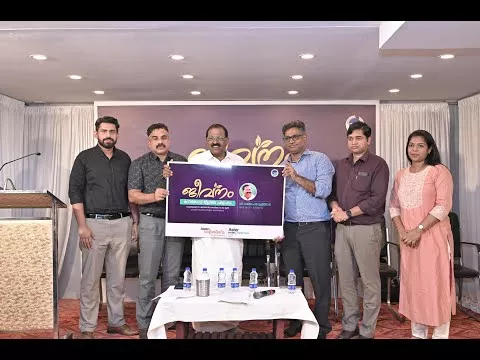We perform kidney transplants for patients with kidney failure and associated disorders
Our Doctors
We have some of the best specialists from around the world, they bring years of experience and offer evidence-based treatment to ensure the best care for you.
FAQs
At Aster Hospitals we provide the highest quality of care and a transformative experience for all your healthcare needs. With our network of multi-speciality hospitals, specialised doctors, and world-class technology, we bring global standards of medical care to our patients.
What causes kidney failure?
Chronic kidney disease (CKD) occurs when your kidneys have been malfunctioning for more than 3 months. It’s an irreparable, life threatening condition and there might be no visible symptoms at all.
Diabetes (types 1 and 2), high blood pressure, immune system diseases such as Lupus and chronic viral illnesses like AIDS, Hepatitis B and Hepatitis C can also cause kidney failure.
The other reasons for kidney failure include:
- Multiple episodes of urinary tract infection
- Post-strep infection
- Polycystic kidney disease
- Inherited kidney diseases
- Congenital or birth defects - In many cases, the defect is rectified while the baby is still in mother’s womb; whereas those with major complications can only be managed at a later stage.
- Drugs and toxins, including long-term use medications like NSAIDs (Non Steroidal Anti Inflammatory Drugs
- Long-term exposure to certain chemicals
What are the types of kidney transplant?
There are two types of kidney transplants: Live donor Transplant and Cadaver Transplant
When a person is transplanted with a kidney from a live donor, it is called Live Donor Transplant. The donor could be anyone - a family member, friend, colleague or even a random person who is generous enough to gift life by donating one of his/ her kidney.
Usually, the success rates of kidney transplants in which the donor and recipient belong to one family (parent/ sibling) are higher. This is because of high donor-recipient compatibility, which means the chances of rejection are very low. A live donor makes things easy as the waiting period is lesser and the patient gets well faster.
Cadaver transplant is when the kidney is got from a donor who is certified brain-dead. He or she would have would have signed up for donation before death. The kidney is surgically removed after obtaining consent from the deceased’s family and transplanted in the recipient.
What are the possible post-transplant risks?
The post-surgical risks, like every other transplant surgery, include rejection, infection, bleeding or reaction to anaesthesia.
Rejection happens when the body fails to recognise the new kidney and fights to destroy it. During the first few weeks or months post-surgery, your body may try to reject your new kidney. This is called acute rejection and occurs in 25 - 55% of the recipients. You’ll be given immuno-suppressants to counter this problem. Remember, it is mandatory to continue these medicines for the rest of your life.
There is also a chance of chronic rejection - a gradual, progressive loss of kidney function that may occur over many years. Unfortunately, there’s no known treatment for chronic rejection and the patient may have depend on dialysis again or opt for another transplant.
Aster Centre of Excellence in Multi-Organ Transplant has a very strong infection control system that’s managed by a highly-trained team of infectious diseases & infection control Physicians. Besides, we also have advanced technology like the HEPA Filter that purifies air to 0.3 microns, creating a safe and sterile environment for the patient.
Is follow-up required post kidney transplant?
It is very important to visit your consulting doctor regularly and undergo all prescribed follow-ups and tests to make sure that your new kidney is functioning well. Remember, transplant surgery is a second chance at life and you need to be responsible for your own well-being.
What is Kidney Transplant?
Kidney transplant is the process of replacing the diseased kidney with a healthy, donated kidney. It is recommended only if the kidneys are so damaged that they cannot be managed medically (Chronic Kidney Disease or End Stage Renal Disease).
In some cases, transplant might not be a practical solution if the patient has an active infection or another life-threatening disease such as cancer, severe heart or lung diseases.
Fortunately, according to worldwide figures, the success rate of kidney transplant is above 95%. This not only comes as a reassurance for those opting for transplant, but also reaffirms the fact that kidney transplant is indeed an effective mode of treatment.
What are the pre-transplant formalities?
You will have to go through a series of investigations before the surgery to ensure that the donor kidney matches your tissue and blood type. You will also be screened for other health problems including heart or lung diseases.
After these tests, you will be enlisted on the transplant list and also on the organ sharing network list. As soon as a matching recipient is available, we will let you know; and if all factors are favourable, our entire team will work as one to ensure you undergo the surgery without any issues.
What will it be like after the surgery?
You’ll be under continuous medical observation for 7 to 10 days post surgery, so that we can check whether your new kidney is functioning properly. At times, the new kidney might take some time to start functioning and produce urine. You might have to undergo dialysis till then and also take medications like diuretics to help the kidney expel excess water and salt from your body.
Our nurses and rehabilitation experts will take good care of you and guide you through your recovery.
We have state-of-the-art hemodialysis and peritoneal dialysis facility, complete with a water treatment plant to ensure high-quality dialysis for patients.
Blogs
The source of trustworthy health and medical information. Through this section, we provide research-based health information, and all that is happening in Aster Hospital.
News & Events
Stay updated with the latest happenings at Aster Hospitals. Explore our News and Events section for insightful articles, health tips, upcoming events, and noteworthy achievements.










